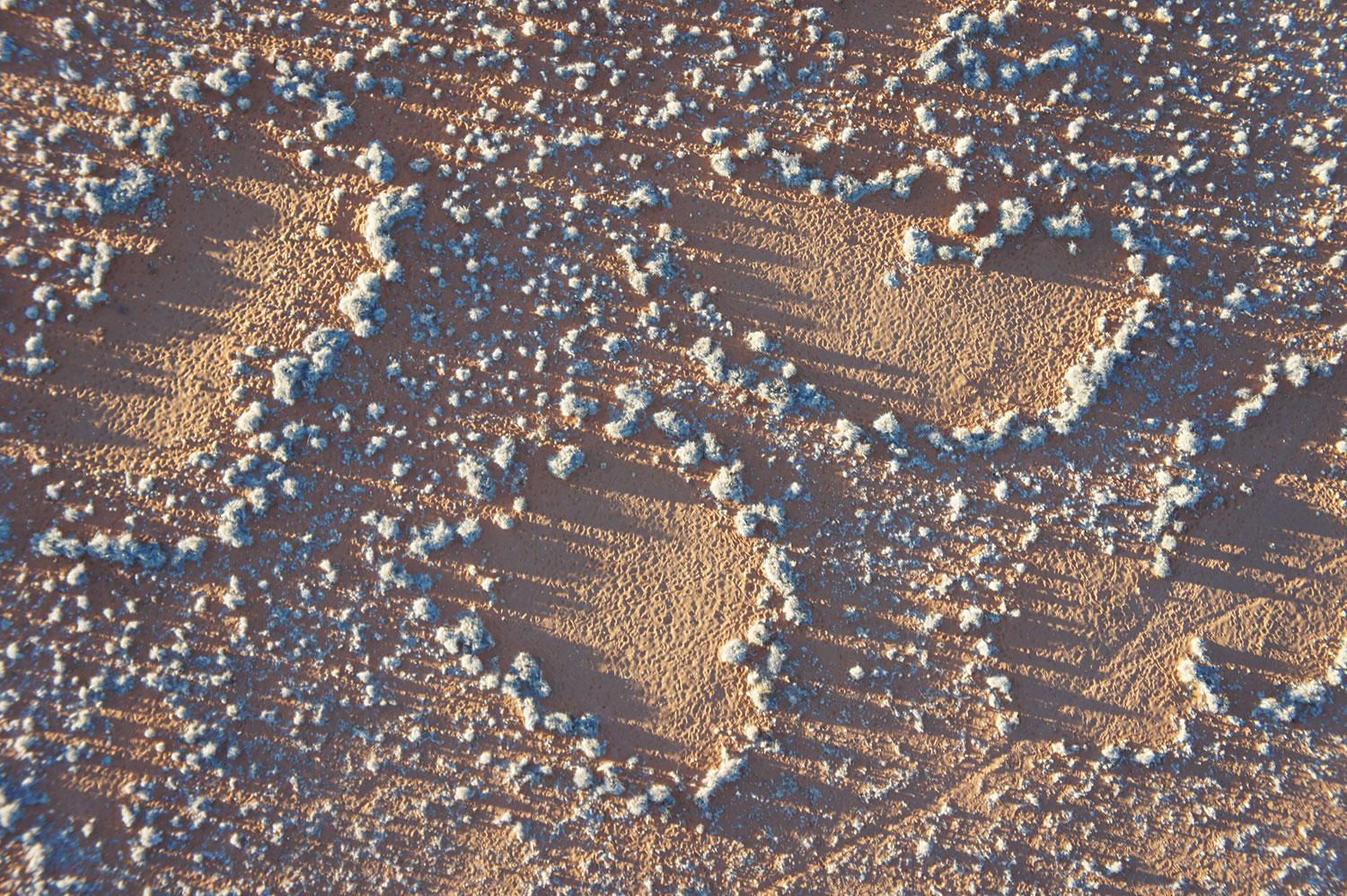
Circles in the Sand

Barren circles of red sand, 30 to 100 feet wide, form a Swiss-cheese pattern across hundreds of miles of arid grasslands in the Namib Desert of southwest Africa. No one knows why. Local legends call them footprints of the gods.
Scientists have proposed various causes for these “fairy circles,” as they’re also known, including hungry termites and underground gases wafting up and killing patches of grass. Now a CU Boulder team is going back to basics as it tries to solve this enduring ecological mystery.
“We just went to the principles of how ecosystems work and didn't let how cool these were distract us,” said Nichole Barger, professor of ecology and evolutionary biology, who’s closing in on answers after years of research.
It’s no wonder it’s taken a while: Just getting to the fairy circles, which can last for up to 60 years, is a challenge.
In April, Barger and her team traveled six hours southeast from Windhoek, Namibia’s capital, into the NamibRand Nature Reserve, far from gas and groceries. They continued in an all-wheel-drive truck over sandy roads and dunes to follow up on an ongoing experiment.
Two years earlier, Barger had added water, fertilizer and insecticide to some circles to see if she could “kill” them by changing the conditions they form in. The hypothesis: Plants organize into the striking pattern simply due to competition.
Sure enough, in fairy circles where water and nutrients were both added, the grasses grew back — the circles started to “die.” Adding resources had decreased competition among plants, which otherwise fight for them in the low-nutrient, dry environment.
The findings suggest fairy circles form when starved plants die, freeing resources for their neighbors, which grow tall around the dead patch and form the characteristic ring.
The promising results are still only “pieces of the puzzle,” Barger said: The initial cause and what perpetuates the circles might be different. She noticed, for instance, that in fenced circles, inaccessible to zebra and oryx, the grasses also grew back, indicating grazers might play a role in maintaining fairy circles.
On her last day in Namibia, a local guide asked Barger, “What’s causing the circles in the hills?”
She’d never heard of those circles — a new mystery for her next trip.
Photo by Nichole Barger

